Imagine training for years only to face invisible barriers others don’t see. In Calgary’s athletic community, over half of competitors with neurological differences struggle to find support that aligns with their needs. At Riverside, we’ve built a practice centered on one truth: every mind moves differently.
Competitive environments demand more than physical skill. For those with ADHD, autism, or sensory processing differences, routines and social dynamics can feel overwhelming. Our team combines movement science with psychological strategies to help you navigate these pressures without compromising your unique strengths.
You deserve care that adapts to how you think. That’s why our methods blend body mechanics with emotional regulation tools. Whether managing competition stress or refining communication with coaches, we create strategies that fit your neurological wiring.
Key Takeaways
- Calgary-based specialists address both physical and cognitive aspects ofathletic performance
- Custom plans combat anxiety and sensory overload during competitions
- Movement-focused techniques improve focus and emotional control
- Collaborative approach respects individual learning and processing styles
- Proven methods help transition skills from practice to game scenarios
Ready to redefine what’s possible? Reach our Calgary team at (403) 283-7551. Let’s build your path to confident performance – on your terms.
Understanding Neurodiversity in Sports
The playing field isn’t level when minds operate on diverse wavelengths of perception and reaction. Recognizing these differences helps create pathways where every competitor can thrive while honoring their cognitive wiring.
What Neurodiversity Means in Competition
Neurodiversity describes natural variations in brain function seen in conditions like ADHD and autism. These differences influence how people process information, manage emotions, and interact with their environment. In competitive settings, this might mean heightened pattern recognition or intense dedication to skill mastery.
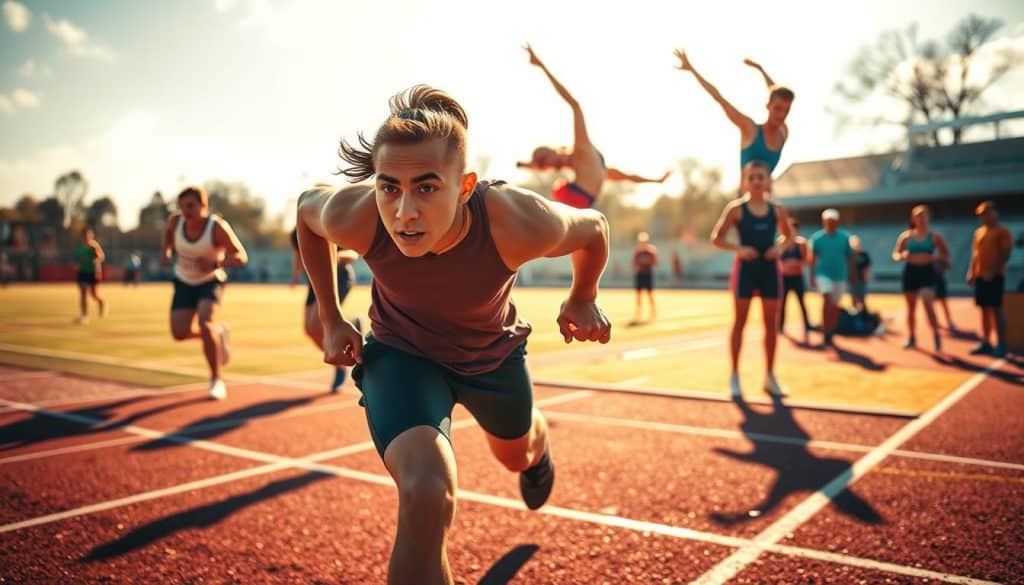
Some individuals experience sensory sensitivity to bright lights or crowd noise during events. Others might struggle with time management between training sessions. These variations aren’t flaws—they’re part of human diversity requiring tailored support strategies.
How It Shapes Success and Challenges
Unique cognitive traits can become assets. Hyperfocus might help perfect a tennis serve, while attention shifts could hinder team coordination. Social communication styles may affect feedback exchanges with coaches, requiring adapted interaction methods.
Stress from unpredictable game scenarios may heighten anxiety for some competitors. Our approach identifies these pressure points while amplifying inherent strengths. By aligning training with neurological needs, we help unlock consistent performance breakthroughs.
The Role of Riverside Sports Therapy in Calgary
Every competitor brings a distinct mental framework to their game. At our Calgary-based practice, we focus on transforming neurological differences into competitive advantages. Our team specializes in addressing both physical performance and psychological well-being through personalized strategies.
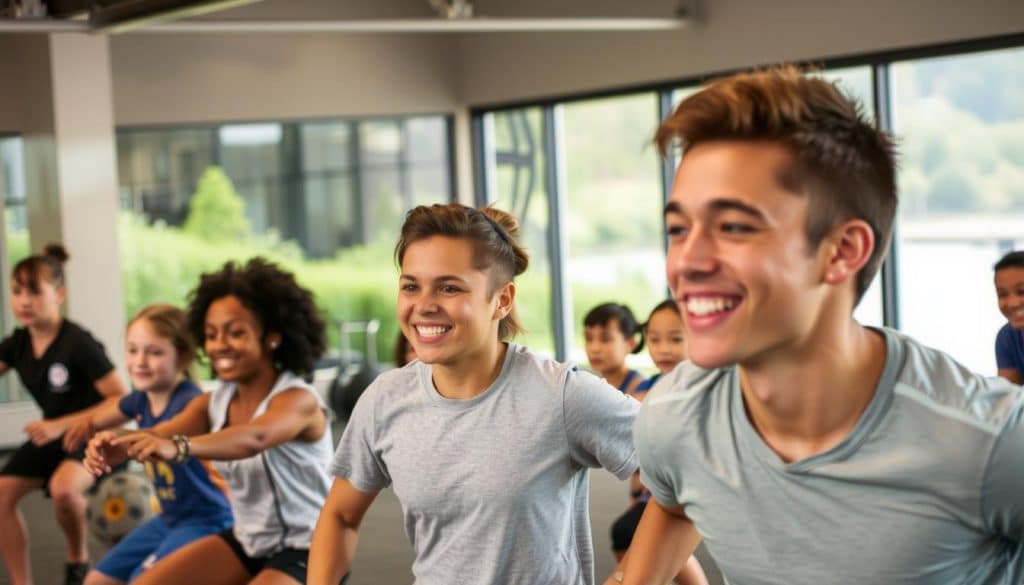
Our Commitment to Supporting Neurodivergent Athletes
We help individuals manage challenges like social anxiety and emotional regulation through targeted interventions. Our plans combine movement analysis with cognitive techniques to enhance focus during high-pressure situations. Whether you’re transitioning out of competitive environments or building confidence, our methods adapt to your needs.
Collaboration sits at the heart of our process. By working closely with families and coaches, we create consistent support systems that extend beyond training sessions. Ongoing education ensures our team stays updated on the latest neurodiversity research, allowing us to refine our approach continuously.
Facing obstacles in your athletic journey? Connect with our local experts at (403) 283-7551. Let’s develop solutions that honor your unique way of processing the world.
Implementing Sports Therapy for Neurodivergent Athletes
Mastering your craft demands strategies that align with your brain’s unique wiring. Our Calgary team designs methods rooted in cognitive science and athletic experience. We focus on transforming challenges into competitive edges through personalized support systems.
Innovative Approaches We Use
Every plan begins with detailed assessments identifying neurological strengths and needs. We blend cognitive-behavioral techniques with movement-based interventions tailored to how you learn. For those with attention differences, structured routines and visual guides help manage complex environments.
Sensory integration methods reduce overwhelm during high-pressure moments. Mindfulness practices adapted for focus challenges promote emotional control. These approaches honor your natural processing style while building competition-ready skills.
Science-Backed Session Methods
Our methods combine proven psychological frameworks with cutting-edge research. Studies in motor learning and neurodiversity inform every strategy we create. Regular progress tracking ensures techniques evolve with your developing abilities.
Collaboration drives lasting results. By adjusting tools based on real-time feedback and emerging science, we help you maintain peak performance. Ready to explore what’s possible? Connect with our specialists at (403) 283-7551.
Concussion Management for Neurodivergent Athletes
Head injuries demand extra vigilance when your brain processes information differently. Research shows conditions like ADHD can influence how symptoms appear and heal. Our Calgary team uses customized protocols to address these unique needs.
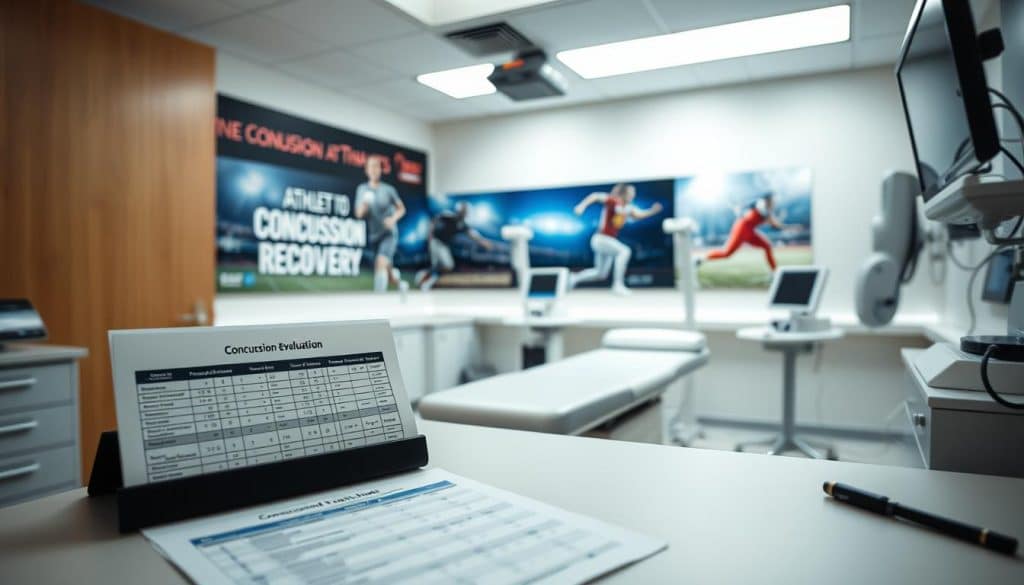
Recognizing Concussion Risks in the Field
Impulsive decisions during gameplay may increase collision risks for some competitors. Traditional baseline tests often miss crucial details when attention differences exist. We adjust evaluations to account for your natural cognitive patterns.
Our assessments track subtle changes in reaction time and focus that standard screenings might overlook. This approach helps create accurate recovery benchmarks tailored to your neurological profile.
Supportive Recovery Strategies Tailored for You
Returning to activity requires careful monitoring when processing styles differ. We design phased plans that consider how you experience fatigue or sensory input. Visual progress trackers and adjusted rest periods help maintain momentum.
Communication barriers can delay symptom reporting. We train coaches and families to spot physical cues like balance changes or light sensitivity. Regular check-ins ensure recovery aligns with your brain’s healing timeline.
Need concussion care that respects your cognitive wiring? Call (403) 283-7551. Let’s build a safety plan that protects both your health and competitive goals.
Prevalence and Research in Elite Sports
Patterns in performance data reveal surprising connections between cognitive diversity and athletic achievement. Recent studies suggest structured physical activities might naturally align with specific neurological profiles, creating environments where certain minds thrive.
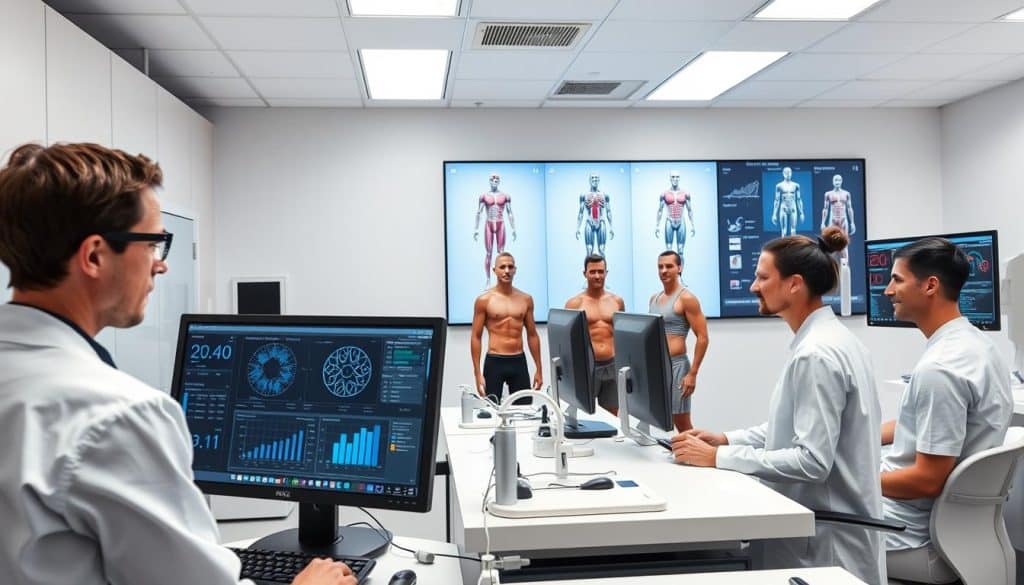
Latest Epidemiological Findings from Local Data
Analysis shows ADHD occurs 2-3 times more frequently among competitive performers compared to general population rates. This trend appears stronger in sports requiring rapid decision-making. Researchers propose the immediate feedback loops in athletics may resonate with attention-diverse processing styles.
Autism prevalence in youth athletic programs ranges from 0.7% to 3%, mirroring broader societal statistics. However, many cases go undetected due to masking behaviors. Structured routines and clear performance metrics often help individuals manage challenges without formal diagnosis.
Canadian studies highlight how training environments influence cognitive patterns. Athletes with attention differences frequently report better focus during practice than classroom settings. This suggests sport-specific frameworks could inform broader support strategies.
Our team uses these insights to refine assessment tools and intervention methods. By tracking outcomes across hundreds of cases, we contribute valuable data to ongoing research while improving local support systems.
Tailored Treatment and Therapy Approaches for Athletes
Your brain doesn’t follow a playbook – neither should your training. Our Calgary team crafts individualized plans that map to how you think, move, and recover. We start by analyzing your sensory preferences, communication style, and stress triggers to build strategies that fit like a second skin.

Certified specialists blend cognitive-behavioral techniques with movement-based methods. Breathing exercises calm competition nerves. Yoga sequences improve body awareness during high-stakes moments. Every tool adapts to your attention patterns and learning preferences.
Traditional coaching often misses the mark for those with unique processing styles. We redesign sports psychology methods using visual guides for pattern thinkers. Time management frameworks help organize chaotic schedules. Stress reduction practices honor sensory needs instead of fighting them.
Your feedback shapes every step. Weekly check-ins adjust techniques based on what works for your neurology. Research-backed updates ensure methods stay current with neurodiversity studies. This collaborative process builds trust while sharpening performance.
Ready to experience support designed around your mind? Call (403) 283-7551. Let’s create solutions that celebrate how you’re wired – not force you into standard molds.
Holistic Coaching Techniques for Inclusive Sporting Environments
Building team success starts with understanding how different minds absorb information. Coaches often face challenges when traditional methods don’t resonate with all players. Our approach bridges this gap by reshaping how instructions are delivered and environments are structured.
Adjusting Communication and Instruction Methods
Clear directions matter. We help trainers simplify language and demonstrate actions visually. Complex drills become manageable when broken into sequenced steps. For example, showing a basketball play through diagrams before physical practice helps some players grasp patterns faster.
Key strategies we implement:
- Visual guides for skill demonstrations
- Three-part verbal instructions with pauses
- Physical modeling of techniques
Fostering an Environment of Team Inclusion
Team dynamics shift when everyone feels understood. We guide groups in establishing routines that reduce anxiety, like pre-game checklists. Sensory-friendly spaces with reduced noise help players regroup during intense moments.
Coaches learn to recognize strengths in diverse thinking styles. A teammate’s attention to detail might improve defensive strategies. Another’s hyperfocus could enhance individual skill mastery. Celebrating these differences builds trust and collaboration.
Ready to transform your team’s culture? Call (403) 283-7551. Let’s create spaces where every mind contributes meaningfully.
Effective Strategies for Youth and Elite Athletes
Growing skills while managing neurological differences requires more than raw talent—it demands smart adaptations. Whether you’re developing fundamentals or competing at advanced levels, strategies must evolve with your cognitive wiring. Our Calgary-based methods bridge developmental needs and high-stakes performance through science-backed solutions.
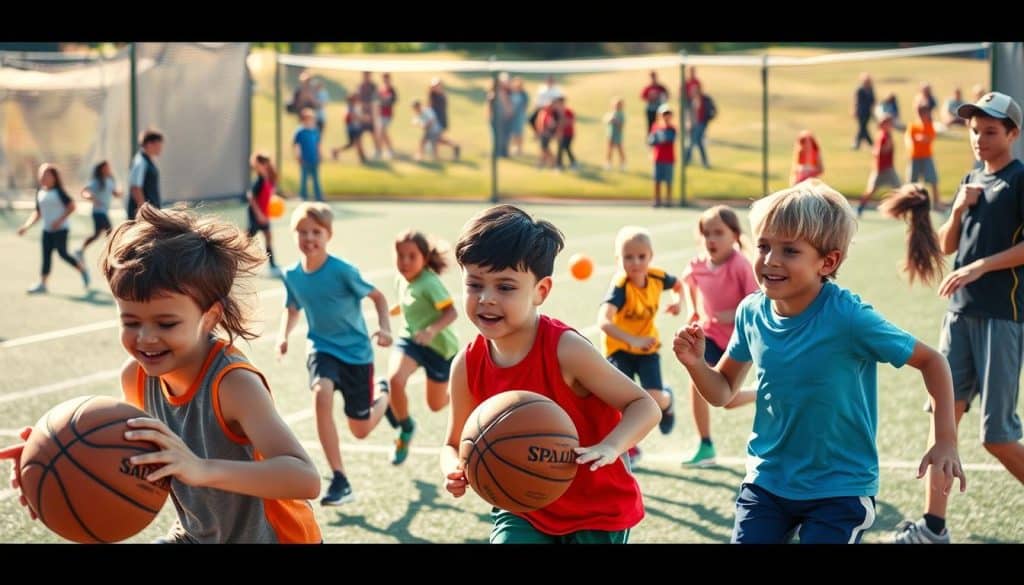
Building Success Through Cognitive Alignment
Young competitors with attention differences thrive when training matches their processing style. We replace long drills with movement-rich activities that sustain engagement. Immediate positive feedback reinforces progress, aligning with how their brains prioritize real-time rewards.
For those needing structure, we design predictable routines with visual schedules. Unexpected changes come with clear warnings to reduce anxiety. Sensory-friendly spaces help manage overwhelming environments during competitions or team events.
Elite performers face unique pressures. Our specialists create coping tools for intense training phases, like noise-reducing gear for crowded venues. Breathing techniques stabilize focus during critical moments. We also coach communication skills to express needs confidently to coaches.
Every plan balances skill development with neurological needs. Progress tracking ensures strategies grow as you advance. Ready to refine your approach? Call (403) 283-7551. Let’s craft solutions that honor how you learn and compete.
Adapting Training Environments to Diverse Needs
Training spaces should empower, not hinder, your potential. Our team evaluates facilities to pinpoint distractions affecting focus. Bright lights, echoing sounds, or crowded layouts often create unnecessary barriers.
We implement subtle changes respecting individual needs. Noise-reducing headphones help manage auditory sensitivity during drills. Adjusted lighting reduces glare for those with visual processing differences. These adaptations maintain challenge while minimizing overwhelm.
Equipment placement matters. Clear visual markers guide movement patterns without verbal cues. Predictable practice sequences build confidence in dynamic settings. Small shifts create inclusive spaces where skills flourish naturally.
Every adjustment honors how you experience the world. Want tailored solutions for your training environment? Call (403) 283-7551. Let’s craft spaces where your abilities shine.
